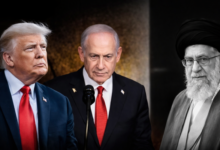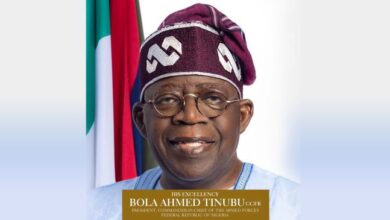Despite rising insurgency, abductions, corruption allegations and general turmoil, Nigeria ranks as the top investment destination for international organizations and multinational companies, according to a June report.
The Washington, DC-based Frontier Strategy Group, which advises multinationals in doing business in emerging markets, has released its Frontier Market Sentiment Index, contracted by the Wall Street Journal.
The index is a based on a survey of Frontiers Strategy Group’s roughly 200 multinational clients, which include companies such as Coca-Cola, General Electric, Novartis, Pfizer, Microsoft, Cisco, Nestlé and Dell.
According to the report, out of the 20 countries attracting the most attention from multinationals – including 11 African countries, Nigeria emerged the number one frontier-market economy in terms of attracting investment interest from European and American multinationals. The report noted: “Nearly three in 10 companies have Nigeria on their watch list.” Nigeria with 29.57% and was followed by Kenya with 23.17%.
“So what we have is about 30% of companies – and we work with about 200 different multinationals, we are tracking Nigeria,” Matt Lasov, global head of Advisory & Analytics at Frontier Strategy Group told Afkinsider in an interview, noting that the majority of their clients are either American or European.
“It should be no surprise that, Nigeria with a population of 170 million people and now the largest economy in sub-Saharan Africa after they finished their re-basing, that so many companies are interested,” says Lasov.
“There’s a lot of private money also in Nigeria. And what some people don’t realize is that there’s a big disconnect between the private sector and public sector in Nigeria,” Stephen Hayes, president and CEO of the Corporate Council for Africa told Afkinsider in an interview. “And the private sector is really driving economic development, not the government.”
US-Nigeria Trade
The United States and Nigeria signed the US-Nigeria Trade and Investment Framework Agreement in 2000 to strengthen overall trade and investment between the two countries.
The eighth meeting of the US-Nigeria Trade and Investment Framework Agreement Council was held in March and focused on improving market access, utilizing the African Growth and Opportunity Act – which is up for renewal in 2015, protecting intellectual property rights, implementing the new World Trade Organization Trade Facilitation Agreement and improving the general bilateral investment climate, according to the Office of the US Trade Representative.
Total US-Nigeria trade was at $18.2 billion in 2013, according to the Office of the US Trade Representative. US imports from Nigeria were valued at $11.7 billion, $11.6 billion of which was crude oil. Non-oil Nigerian exports to the US included leather, prepared vegetables, beans, cocoa paste, spices and cassava. US exports to Nigeria were valued at $6.5 billion in 2013 and include mineral fuels, vehicles, wheat, machinery and plastics.
Meanwhile, US foreign direct investment in Nigeria totaled $8.1 billion in 2012 – the latest data available, up 53.6% from 2011.
According to Frontier Strategy Group, their 200 clients have focused on four main industry sectors.
“I can tell you anecdotally in working with our clients is that it’s been companies and consumer goods, healthcare, technology, and obviously industrials as well,” Lasov told Afkinsider.
Consumer goods companies are broken down by durables and non-durables; technology companies include software and hardware; healthcare companies that is medical devices and Pharmaceuticals.
“And then we have a fourth grouping that we call industrials, and that’s everything from big manufacturers to companies dealing with infrastructure, and a handful companies in mining and energy,” says Lasov. “Chemical companies are pretty big for us.”
Energy Investments on the Rise
Meanwhile, it’s the energy sector where the funding spigot seems to remain cranked wide open.
Nigeria’s crippling energy shortages continues to draw global investments to upgrade the nation’s energy infrastructure. Roughly 60 percent or 80 million Nigerians access to electricity and those who are connected to the electric grid face regular power outages. One estimate is that Nigeria needs approximately $35 billion to add the needed 40,000 megawatts of power by 2020.
Nigeria’s Minister of Power, Chinedu Nebo, pledged during the 2014 World Economic Forum on Africa in May – which took place in Nigeria – the country would connect 1.5 million households every year to achieve 75 percent access to electricity by 2020.
Global development partners will inject about $2 billion into Nigeria’s power sector in the next few years, the Country Representative of the United Nations Industrial Development Organization, Dr. Patrick Kormawa, announced at the World Economic Forum on Africa.
This would supplement the development work in Nigeria by groups including the US Agency for International Development, UK’s Department for International Development, Japan International Cooperation Agency, and the French Development Agency.
Nigeria is also one of the six designated Power Africa countries and its Minister of State for Power even created a “Power Africa Desk” at the Federal Ministry of Power to serve as a one-stop-shop for stakeholders to attract investments to the Nigerian power sector based on US funding and technical assistance.
In May, US Secretary of Commerce Penny Pritzker hosted 20 American companies on an energy development trade mission to West Africa, visiting Nigeria as well as Ghana. The 20 firms joining the mission included Acorn Energy, GE, MacLean Power Systems, Solar Reserve and Symbion Power.
Also in May, the World Bank approved a package of loans and guarantees to boost independent power generation in Nigeria, including up to $245 million for the 459 megawatt Azura Edo power plant near Benin City and up to $150 million for the 533 megawatt Qua Iboe plant in Ibeno.
A month earlier, the Bank announced it would increase its development assistance to the country to about$2 billion per year through 2017 through the International Development Association and International Bank for Reconstruction and Development. The bulk of the new financing program will focus on increasing Nigeria’s power generation and electric grid transmission capacity.
On June 12, the Minister of Power, Professor Chinedu Nebo, announced plans to pool $2.6 billion from various financial institutions across the globe just to build out the nation’s electric grid, including$1.6billion from the proceeds of the sales of the National Integrated Power Projects, $500millionfrom World Bank, and $150 million from African Development Bank.
“In addition, we are receiving an incredible number of international parties who want to invest in transmission; not just to give us loan but to come and invest,” stated the Minister of Power.
Those international parties continue to arrive:
On June 17, a five-member “Team Africa” consortium of American investors led by the Yeffet Mesika Group, signed an agreement with the Nigerian government to build a 400 megawatt gas-fired power plantin Bayelsa State. The consortium will solely finance the project while the Nigerian Bayelsa State governments will provide the site and security for the project.
Canadian-based SkyPower FAS Energy, a joint venture between SkyPower Global and FAS Energy, signed agreements with both the Nigerian and the Delta State governments at the World Economic Forum on Africa in May for the construction and operation of 3,000 megawatt of solar projects at an estimated cost of $5 billion.
China also announced continued investment in Nigeria and the Iranian Ambassador to Nigeria, speaking at June’s Nigeria-Iranian Joint Commission meeting in Abuja, said Iran was willing to assist in developing nuclear power technology to boost Nigeria’s electricity supply.
Turmoil No Deterrent
Nigeria’s legendary government corruption hasn’t phased investors either.
“You obviously have corruption, but that’s not different than doing business in say Russia which is at a much higher level of development,” Lasov told Afkinsider.
“As for corruption – it is not unique to Africa and we work through this issue as we do in the other countries in which we operate,” Patricia Obozuwa, Director of Corporate Communications for GE Africa told Afkinsider. “We stay true to the same values of integrity and leadership that we uphold in every country we do business. GE obeys all the laws and regulations to the letter.”
Nigeria’s creditability is looking up.
To his credit, Nigeria’s President Goodluck Jonathan, together with support from the World Economic Forum’s Partnering Against Corruption Initiative, launched of the Clean Business Practice Initiative, a private sector-driven anti-corruption initiative to complement government efforts in fighting corruption in Nigeria and level the playing field in trade, commerce and industry.
The Partnering against Corruption Initiative’s 25 CEO-member “Vanguard community” is chaired by David T. Seaton, Chairman and Chief Executive Officer of US-based Fluor Corporation.
Meanwhile, Liechtenstein announced in late June it will return $227 million to Nigeria that was looted by the former military ruler Sani Abacha in the 1990s. It was the culmination of a 16-year effort to retrieve the money, according to the Nigerian finance ministry.
Interestingly, the rising insurgency in Nigeria apparently “has not discouraged multinationals from venturing into business dealings as opportunities in the countries probably outweigh security risks,’’ according to the Frontier Strategy Group report.
“We operate in 160 countries – some with significant security issues. What’s happened in Nigeria is terrible and our thoughts are with the missing girls and their families,” GE’s Obozuwa told Afkinsider.
Culled from afkinsider
“I think the security concerns are fairly isolated for now to one part of the country, and that’s not the part of the country where multinationals are tending to do business,” Lasov told Afkinsider.













